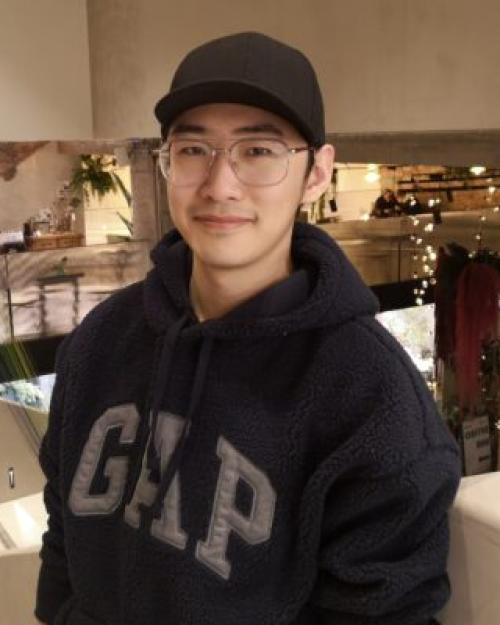Ningdong Wang is a doctoral candidate in physics from Jinan, Shandong Province, China. He earned his B.S. at the University of Illinois at Urbana-Champaign and now works to understand nonlinear beam dynamics in particle accelerators under the guidance of Georg Hoffstaetter at Cornell.
What is your area of research and why is it important?
The focus of my research is understanding nonlinear beam dynamics in particle accelerators. When charged particles like electrons move in an accelerator, they interact with each other and undergo complex motion, known as the space charge effect. This effect can cause the particles to spread out and become unstable, which can limit the performance of the accelerator. To address this challenge, I developed simulation codes to accurately model these interactions and track particles. By understanding the space charge effect and developing new methods to mitigate it, we can design high-intensity next-generation accelerators that will push the boundaries of science and technology.
What are the larger implications of this research?
My work is part of a larger effort to build the Electron-Ion Collider (EIC) at Brookhaven National Laboratory, the next nuclear physics facility to be built in the United States. The EIC will allow physicists to look inside protons and neutrons – the building blocks of the nucleus – and study their properties in unprecedented detail. One of the main goals of the EIC is to understand the strong force that holds protons together. By contributing to the research and design of the EIC, my work will help optimize its capabilities and enable new discoveries that could have broad implications for fields beyond nuclear physics.
What does it mean to you to have been selected for the Department of Energy’s (DOE) Office of Science Graduate Student Research (SCGSR) Program? What will this opportunity allow you to do that you might not have otherwise?
Being selected for the SCGSR program is a tremendous honor and opportunity for me. It will enable me to work on-site at Brookhaven for a year and collaborate with researchers in my field. Specifically, I will be more involved in the design and optimization of the EIC machine, which will give me firsthand experience in developing accelerator technologies. Ultimately, this opportunity will allow me to extend the scope of my research and make a broader impact in my field.
What are your hobbies or interests outside of your research or scholarship?
Outside of my research, I am a big foodie and love cooking. I’m a proud owner of a carbon steel wok and I enjoy experimenting with different Asian cuisines. I find that cooking provides a welcome break from my research and allows me to be creative in a different way.
Why did you choose Cornell to pursue your degree?
Cornell is one of a handful of places that offer training in accelerator physics. It has a long history of conducting research at the forefront of the field. In fact, we have an on-campus accelerator called the Cornell Electron Storage Ring (CESR), which is located right underneath the football field.




